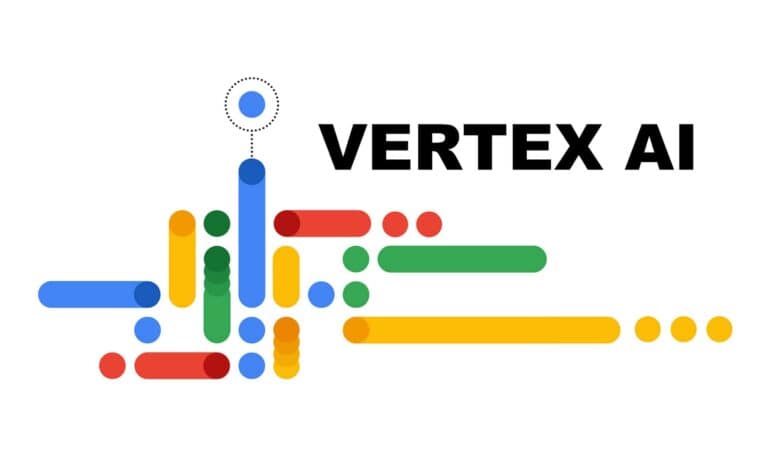During Google Cloud Next in Las Vegas, Google announced a whole series of updates to its cloud portfolio. One of the most important solutions today is Vertex AI. With Vertex AI, you can build AI solutions for your organization. Now Google Cloud is adding the Agent Development Kit, Agent Garden and Agent Engine.
Soon, many organizations will rely on so-called multi-agent systems. These systems consist of multiple AI agents that work together to achieve a goal. The agents can be built on different platforms and frameworks. New standards and protocols now allow different AI agents to communicate and collaborate. Google Cloud is initiating these efforts.
AI models have recently been expanded with new technology. This includes technology that enables reasoning, adding planning capabilities to the models and more memory to remember processes and recent actions and conversations. This makes AI agents a lot more powerful, but also more predictable. If they understand better what they must do, they will also perform tasks more often as desired.
With Gemini 2.5, Google has an AI model suitable for AI agents and extensive reasoning. Using Gemini 2.5 for AI agents means it will be a lot more powerful, the agent can connect to data sources and workflows by itself to complete actions.
If you combine that with the new protocols that enable AI agents to work together, you suddenly have very powerful technology. Google Cloud, as well as other players in the market, foresee that AI agents will not be built by a single player within organisations, which is why they are focusing on multi-agent systems. With Vertex AI, Google Cloud offers the tooling to develop AI agents that are capable of doing that.
An open approach to building agents
Google Cloud has added several improvements to Vertex AI that enable organizations to build agents. A critical component is the Agent Development Kit (ADK), an open-source framework for designing agents. This framework is also used by Google Agentspace and Google Customer Engagement Suite (CES) agents.
Google Agentspace was introduced late last year as a platform that allows employees to carry out complex tasks with a single prompt. It enables organizations to build their own AI agents and automate repetitive tasks so actual human employees can focus on more complicated matters.
The Agent Development Kit allows the building of an AI agent in less than 100 lines of code. It is only available in Python, but later this year, it will be available in more programming languages. With ADK you can:
- Determine how agents think, reason and work together by applying guardrails and orchestration controls
- Interact with agents in natural conversations, thanks to ADK’s unique bidirectional audio and video streaming capabilities.
- Develop agents faster with the Agent Garden, a collection of ready-to-use examples and tools
- Choose the AI model that best suits your needs. Gemini and many other models are accessible via the Model Garden.
Agent2Agent connects agents
One of the biggest challenges in implementing AI agents is how they can collaborate. This becomes even more challenging when they are built on different frameworks or platforms. Google has developed the Agent2Agent protocol for this purpose. This Agent2Agent protocol offers agents a common open language for collaboration, regardless of the framework or platform on which they are built.
This aligns with what we saw earlier with Salesforce’s Agentforce, which recently received a significant upgrade with Agentforce 2dx. This allows AI agents to be proactively deployed within business processes and to communicate with each other. Like Google Cloud’s approach, Salesforce strives for an ecosystem where agents can work together seamlessly. The Agent2Agent protocol has been embraced by almost all major tech companies, including Salesforce. This allows the Agents of Atlassian, Oracle, Salesforce, SAP, ServiceNow and Workday, among others, to work together. AWS and Microsoft are absent from the list of partners.

Google Cloud Agent Engine: from prototype to production
Google Cloud has introduced an Agent Engine to bring agents into production successfully. This fully managed runtime in Vertex AI allows you to implement customized agents with built-in testing, release and reliability functions.
With Agent Engine you can:
- Implement agents built with any framework – ADK, LangGraph, Crew.ai and various others.
- Save context in your sessions so that your agents can remember your previous conversations and preferences.
- Measure and improve agent quality with comprehensive evaluation tools
- Encourage wider adoption by connecting to Agentspace
In recent months, the focus of AI developments has shifted to AI agents. Google, for example, previously introduced an AI agent called ‘Project Jarvis’ that can independently use a web browser to automate everyday tasks. That was a first step; the solutions it is introducing today go much further.
Multi-agent systems are coming
In the coming months, Google Cloud will continue to expand Agent Engine with advanced tools and testing capabilities. Agents will be given the knowledge and ability to use computers and execute code. In addition, a special simulation environment will be available that allows you to thoroughly test agents with various user personas and realistic tools to ensure reliability in production.
Multi-agent systems will play a central role in the future of organizations. Google envisions a powerful ecosystem in which different agents from all kinds of platforms and frameworks can work together intensively. With ever-improving reasoning capabilities, integration with more existing workflows and an open approach, this should be feasible in the short term.
Many large technology companies are fully committed to this development. Both Google with Vertex AI and Salesforce with Agentforce offer platforms that allow companies to take advantage of the possibilities offered by multi-agent systems. This technology enables organizations to automate more complex tasks, allowing employees to focus on work where human creativity and knowledge really add value.
